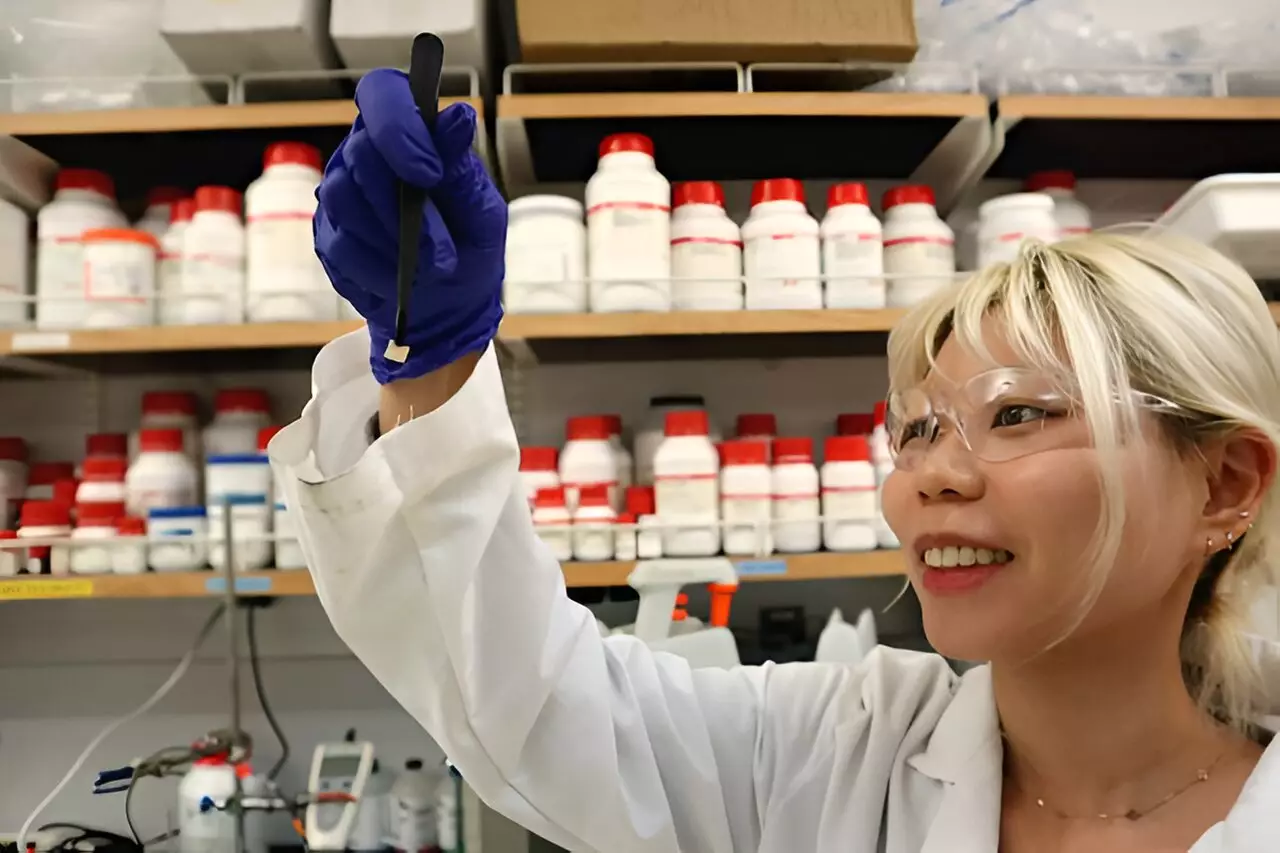Traditional medical adhesives used in surgical procedures have significant limitations, such as limited bio-absorbability, high toxicity, and lack of customizability. These limitations often lead to suboptimal surgical outcomes. However, recent advancements in synthetic biology have paved the way for the development of a promising alternative – tailored biocompatible and biodegradable adhesives designed specifically for internal biomedical applications. Researchers at Washington University in St. Louis, led by Fuzhong Zhang, professor of energy, environmental, and chemical engineering, are addressing this challenge by utilizing a new class of hydrogels constructed entirely from proteins. This innovative approach allows for precise control over mechanical and adhesive properties, overcoming the limitations of traditional synthetic bio-glues.
Zhang’s team, consisting of Marcus Foston, Guy Genin, and Mohamed A. Zayed, has designed hydrogels that are not only biocompatible and biodegradable but also offer outstanding mechanical and underwater adhesive properties. The hydrogels are made of artificially designed proteins that have never been created before, giving them unique advantages for tissue repair and engineering applications. The researchers utilized their previous studies on underwater adhesives inspired by mussel foot proteins (Mfp) to develop a silk-amyloid-mussel foot protein (SAM) hydrogel. By carefully combining silk-amyloid peptides and Mfp, graduate student Juya Jeon, a member of Zhang’s lab, achieved finely-tuned SAM hydrogels that exhibit a combination of beneficial characteristics such as biocompatibility, strength, stretchability, and underwater adhesion.
Jeon’s work in exploring the intricate relationships between protein sequence and hydrogel properties is crucial for designing SAM hydrogels with tailored characteristics for personalized medical repair applications. By varying the combinations of silk-amyloid and Mfps, Jeon and Zhang successfully uncovered complex relationships between material structure and properties. They found that increasing silk-amyloid repeats significantly enhanced cohesive strength and toughness of the hydrogel. On the other hand, extending Mfp length increased the hydrogel’s surface adhesion while decreasing overall strength. Notably, a specific variant demonstrated exceptional strength, strain resistance, and underwater adhesivity when tested on a preclinical model.
The findings of Jeon and Zhang’s study provide crucial insights for guiding the future design of protein adhesives with tunable properties. This paves the way for the development of customized adhesives tailored to specific surgical applications. Zhang states, “This study marks a significant leap forward in the pursuit of safer, more effective surgical adhesives, opening doors to a new era of personalized bio-glues for diverse medical needs.”
The development of tailored biocompatible and biodegradable adhesives for surgical applications is a significant advancement in the medical field. The use of a new class of hydrogels constructed entirely from proteins offers precise control over mechanical and adhesive properties, addressing the limitations of traditional medical adhesives. By leveraging protein sequence-structure-function relationships, researchers can design adhesives with tailored characteristics for optimized surgical outcomes. This breakthrough in synthetic biology provides invaluable insights for the future development of personalized bio-glues, revolutionizing the medical industry and improving patient care.



Leave a Reply